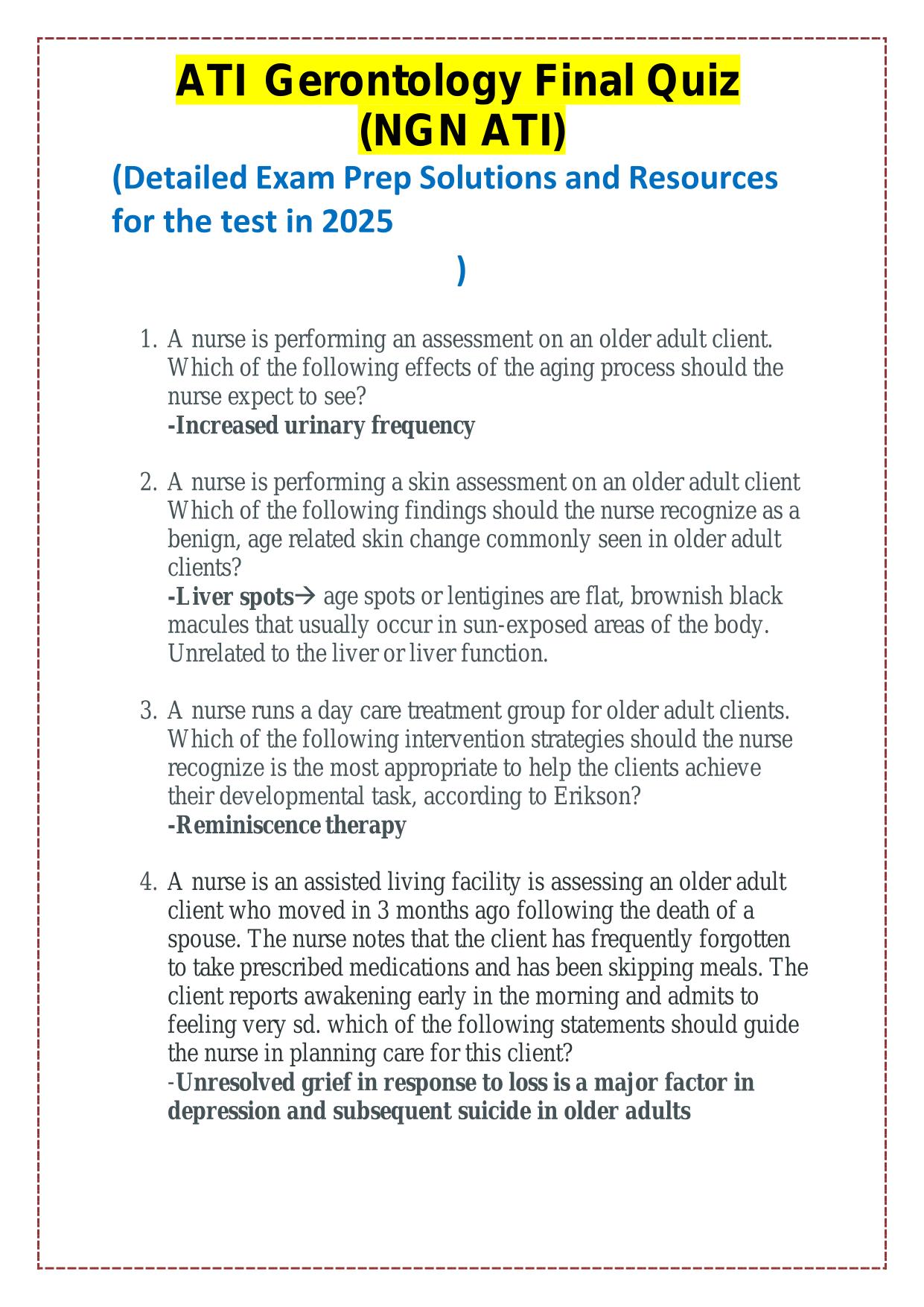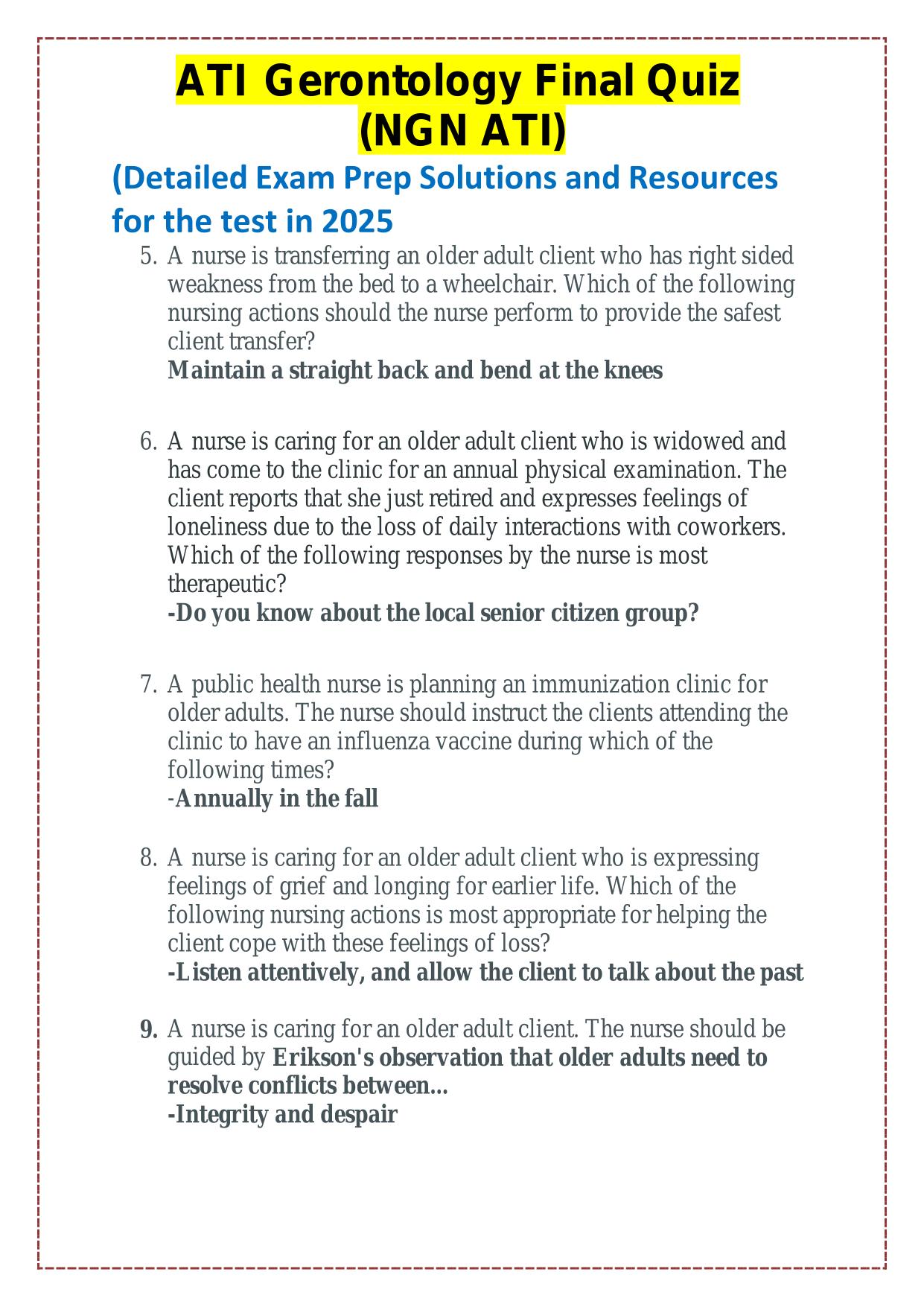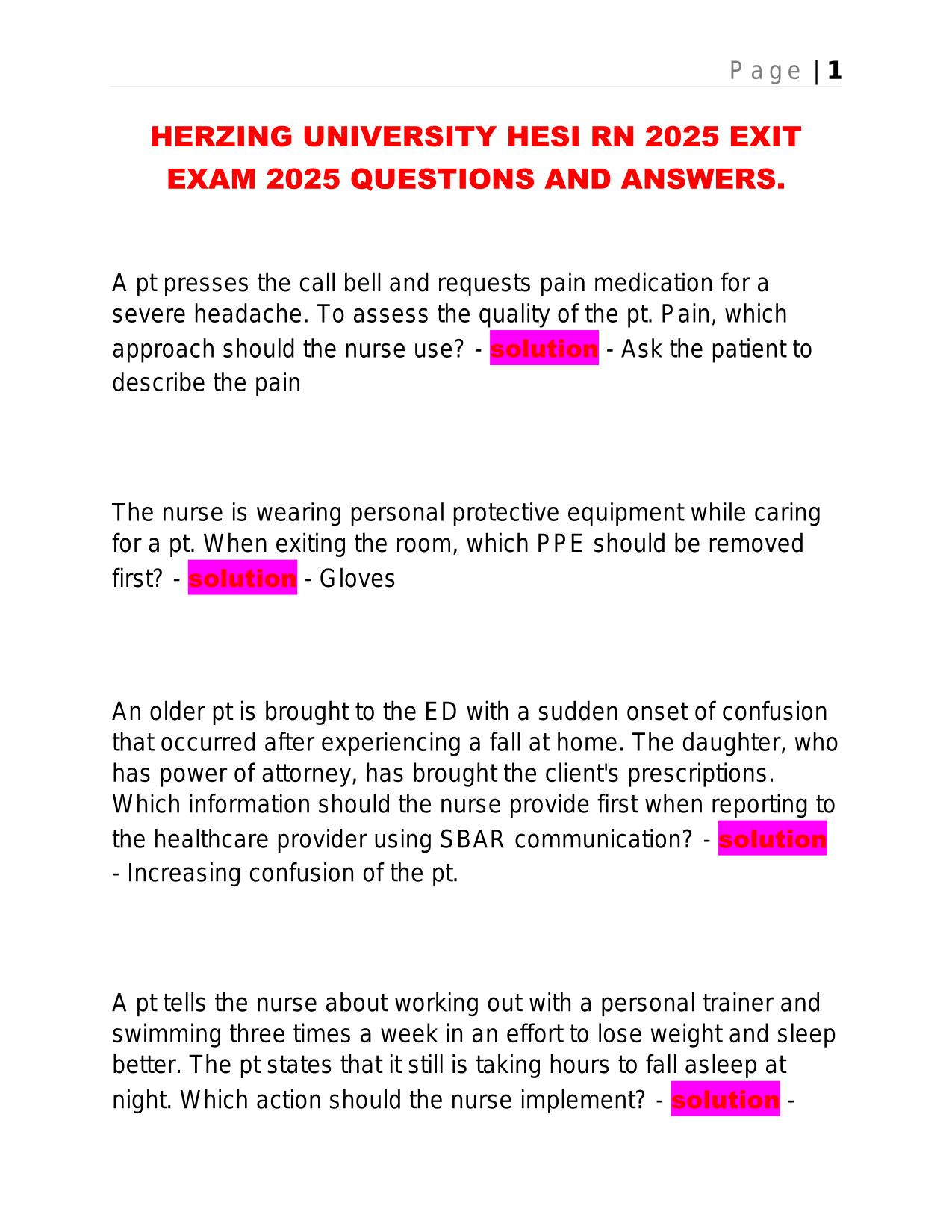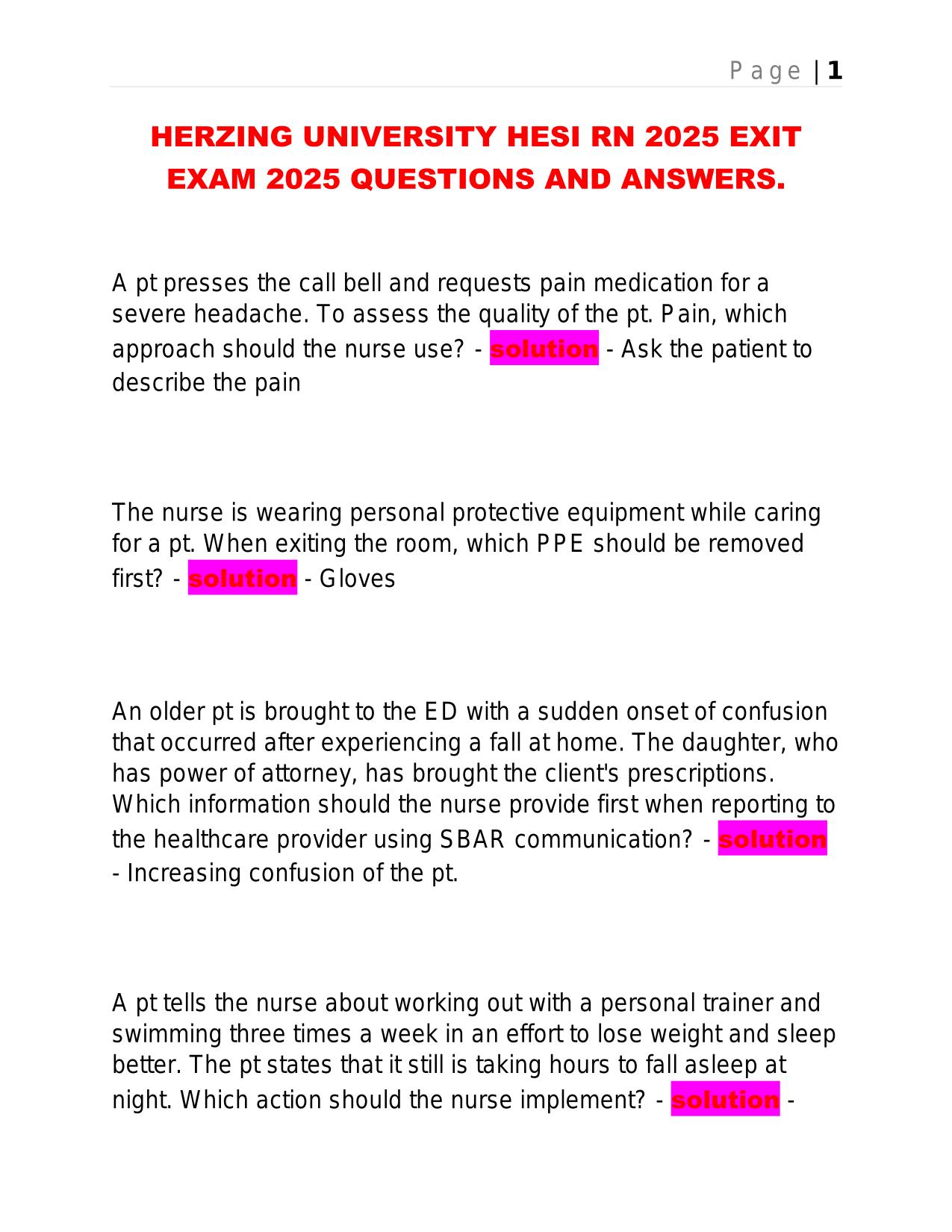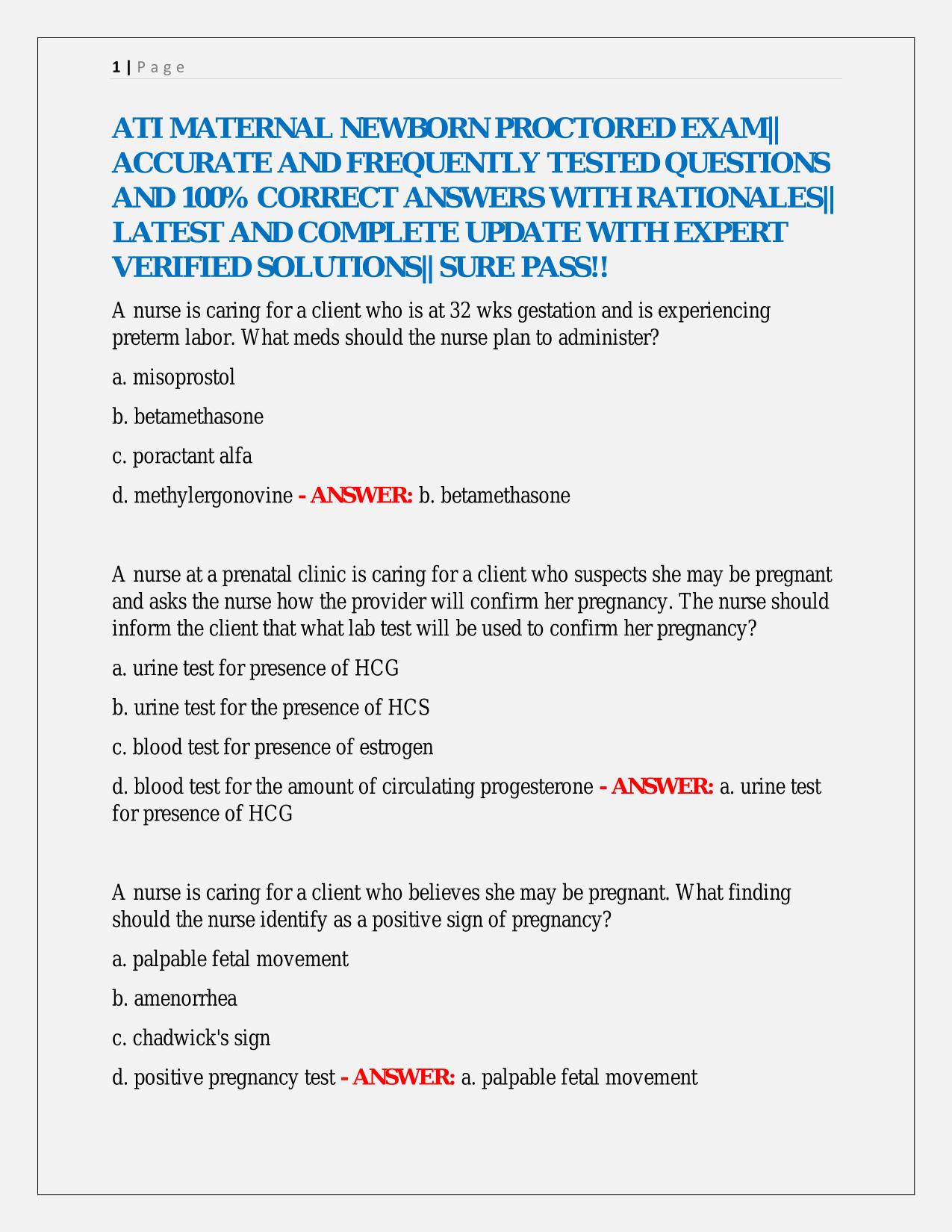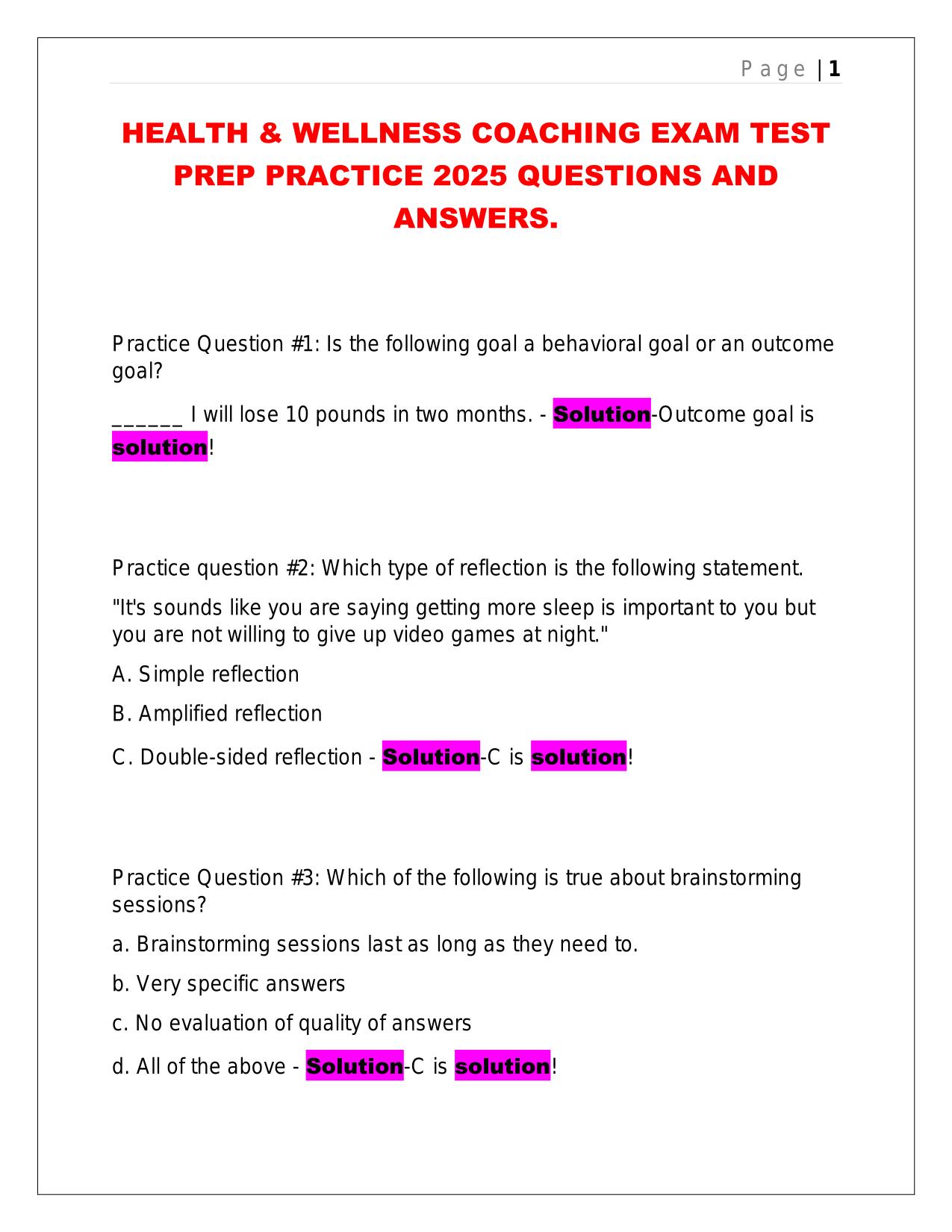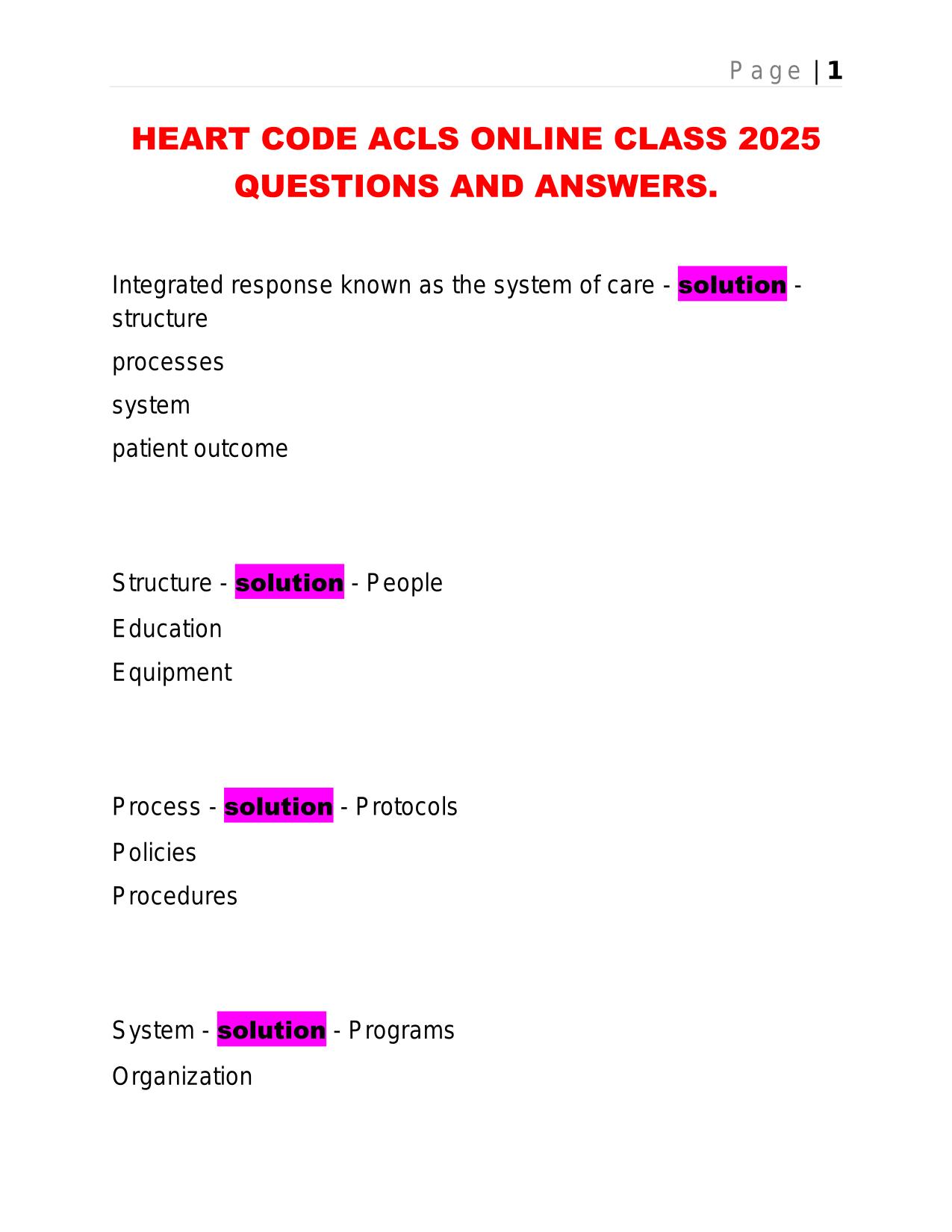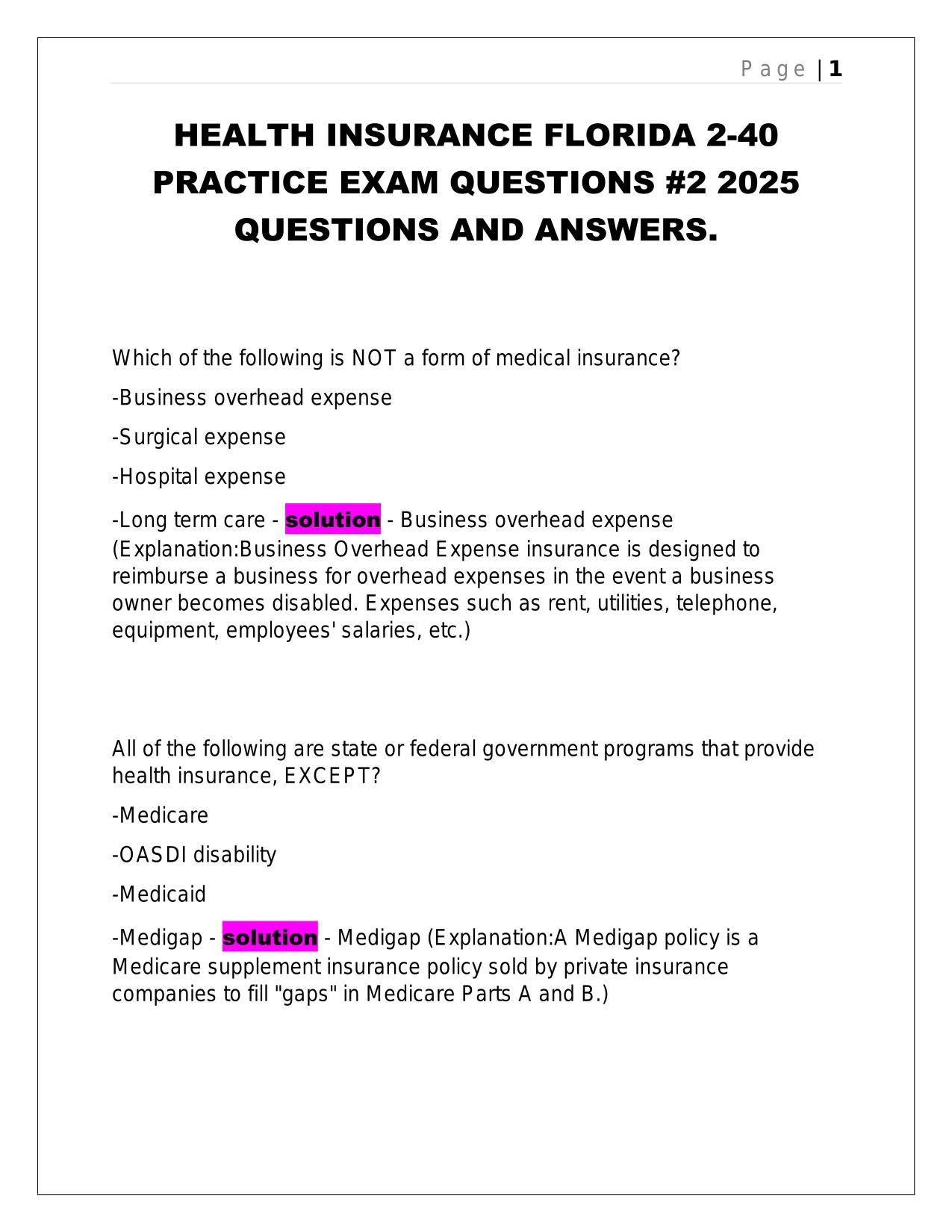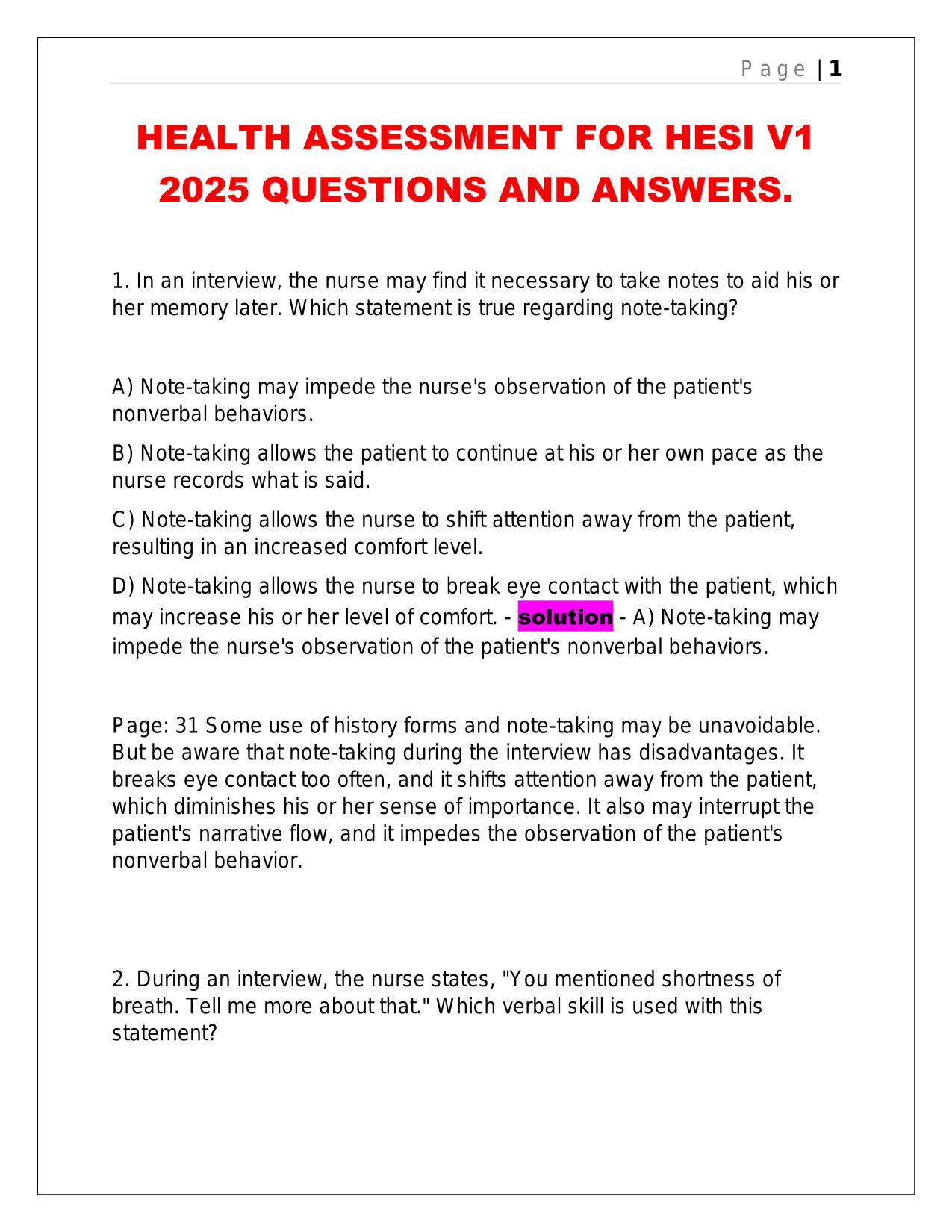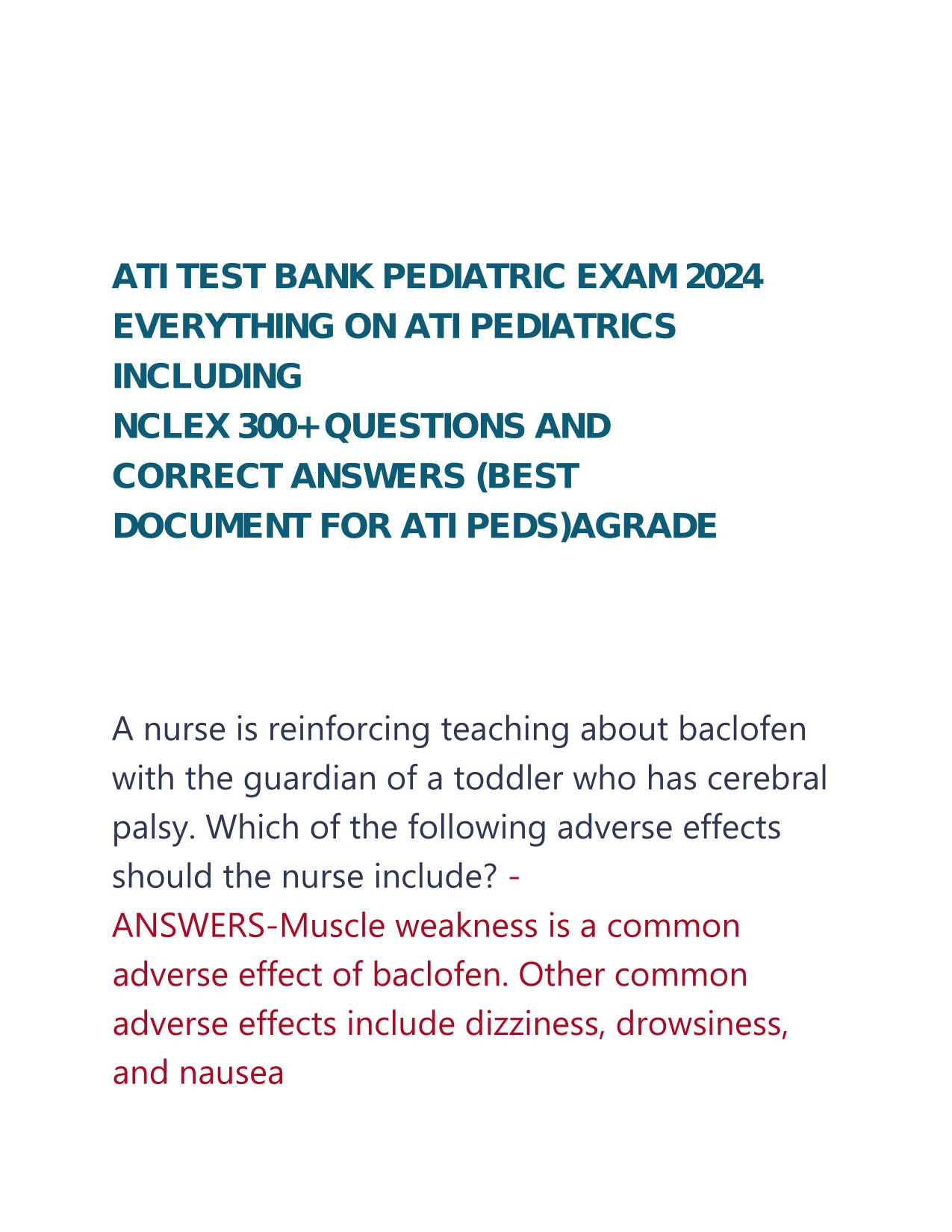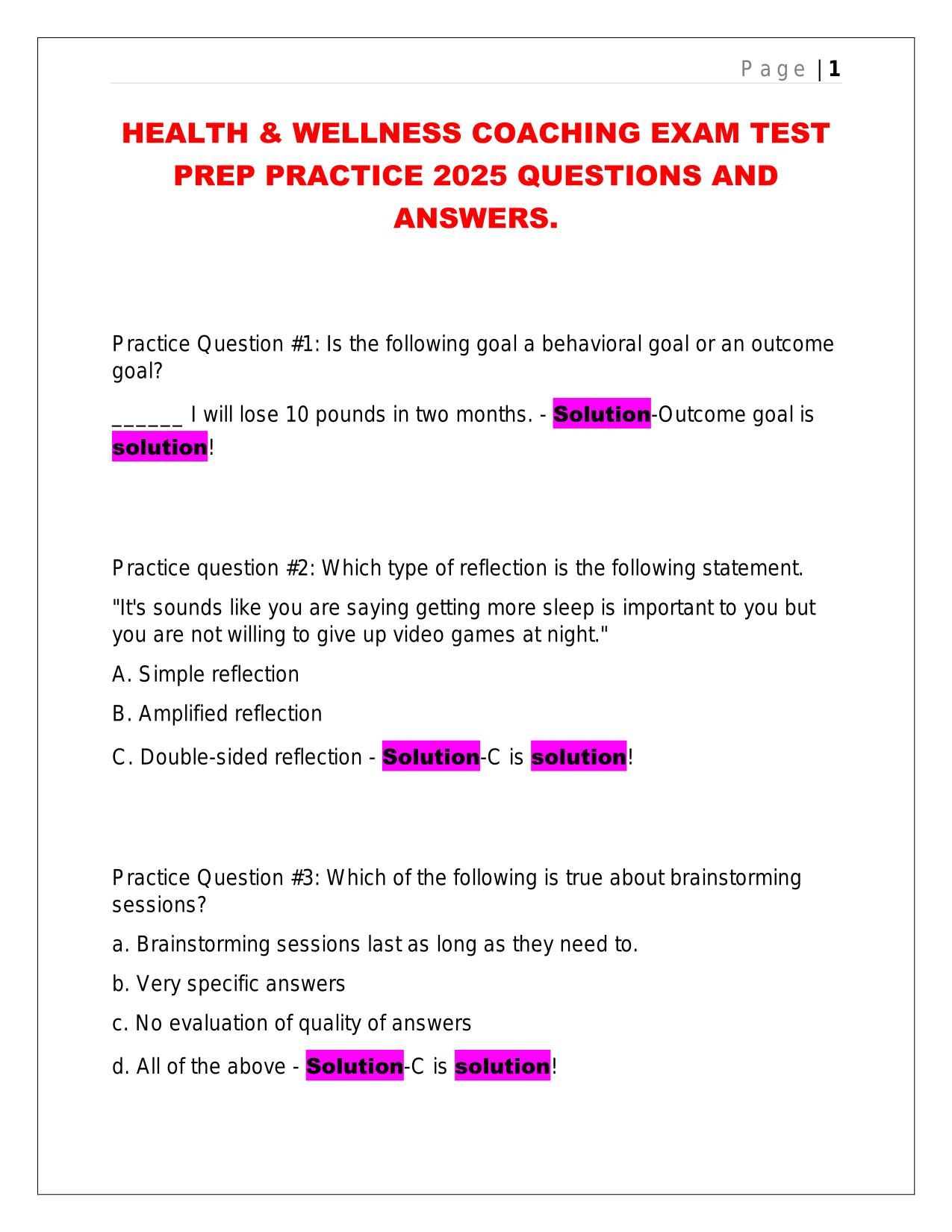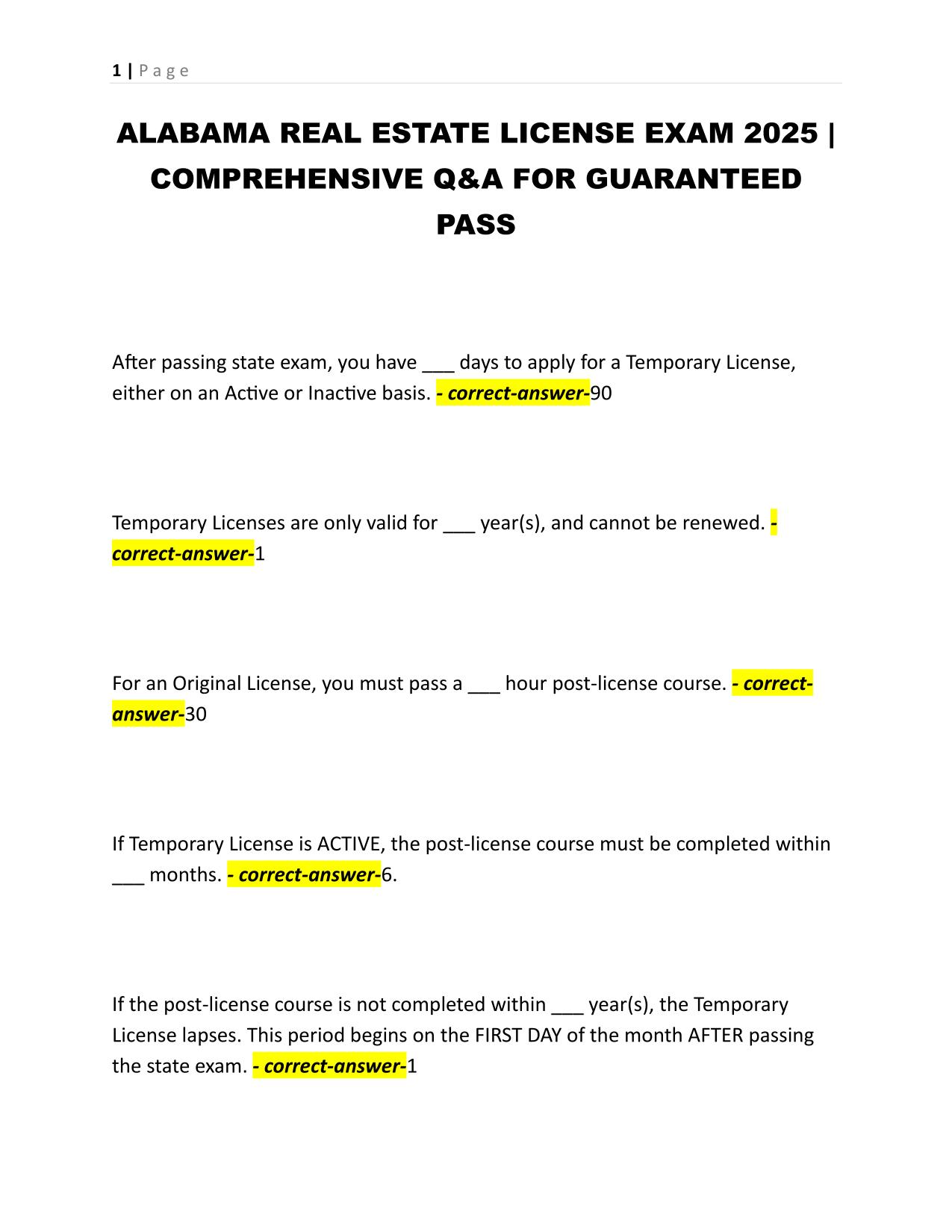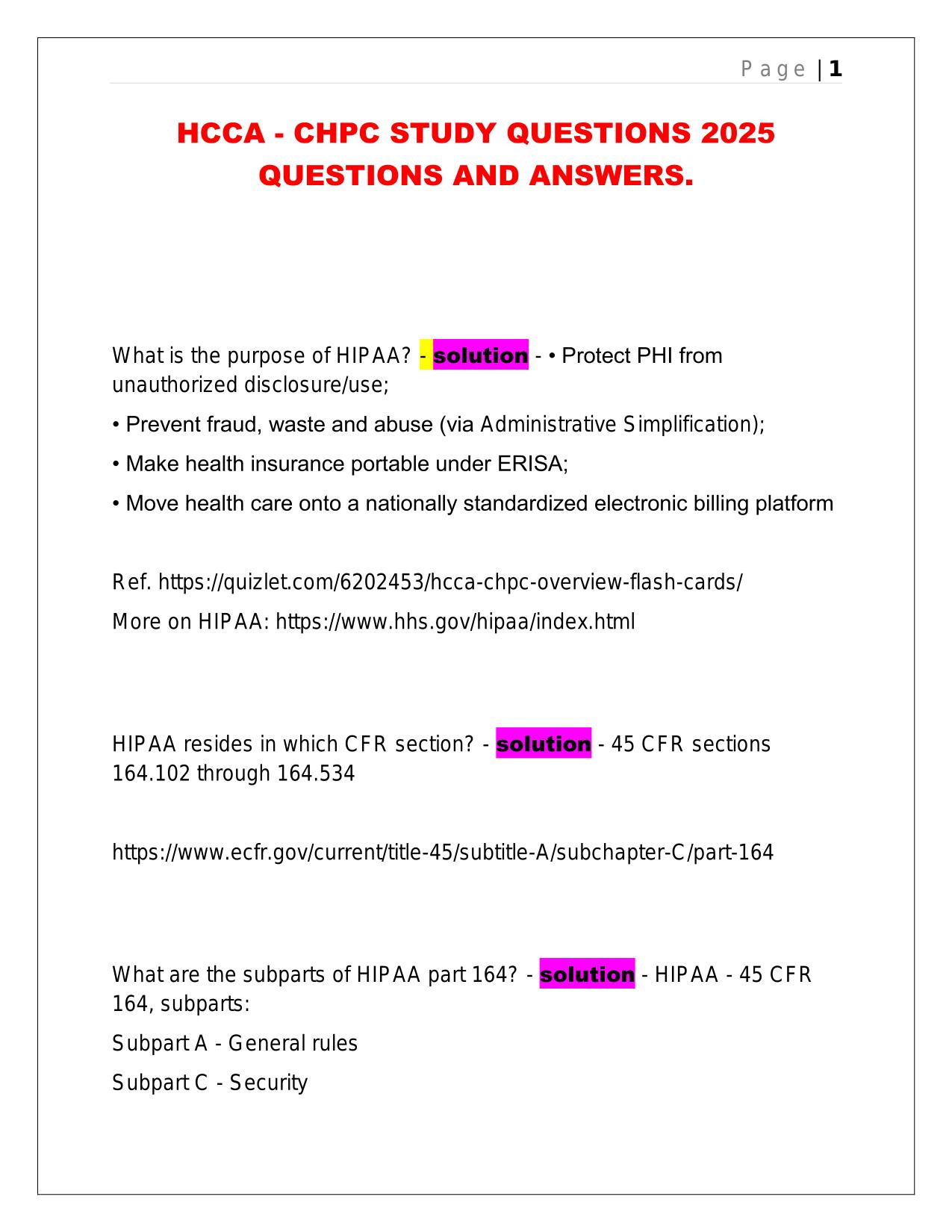ATI Gerontology Final Quiz (NGN ATI) (Detailed Exam Prep Solutions and Resources for the test in 2025
ATI Gerontology Final Quiz (NGN ATI) (Detailed Exam Prep Solutions and Resources for the test in 2025
Course:
2025/2026 Tests
Institution:
2025/2026 Tests
ATI Gerontology Final Quiz (NGN ATI) (Detailed Exam Prep Solutions and Resources for the test in 2025
After purchase, you get:
✅ Instant PDF Download
✅ Verified answer explanations
✅ Refund if not Satisfied
✅ Prepared for 2025/2026 test cycle
Document Information
| Uploaded on: | September 9, 2025 |
| Last updated: | September 9, 2025 |
| Number of pages: | 23 |
| Written in: | 2025/2026 |
| Type: | Exam (elaborations) |
| Contains: | Questions & Answers |
| Tags: | ATI Gerontology Final Quiz (NGN ATI) (Detailed Exam Prep Solutions and Resources for the test in 2025 |
Seller Information

SophiaBennett
Reviews Received
User Reviews (0)
Exam (Elaborations)
$9.50
Bundle Deal! Get all 15 docs for just $24.99
Add to Cart
100% satisfaction guarantee
Refund Upon dissatisfaction
Immediately available after purchase
Available in Both online and PDF
$9.50
| 0 sold
Discover More Resources
Available in a Bundle
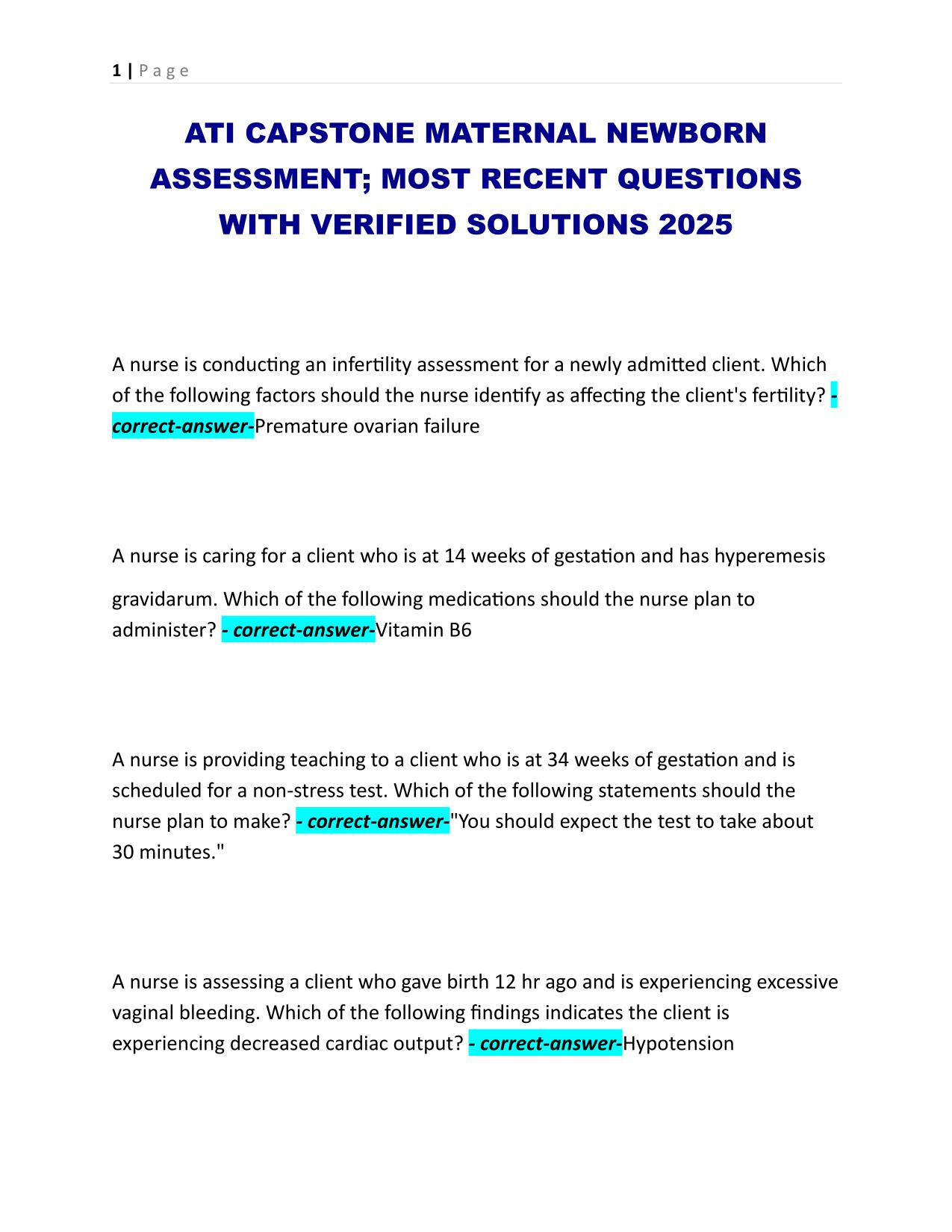
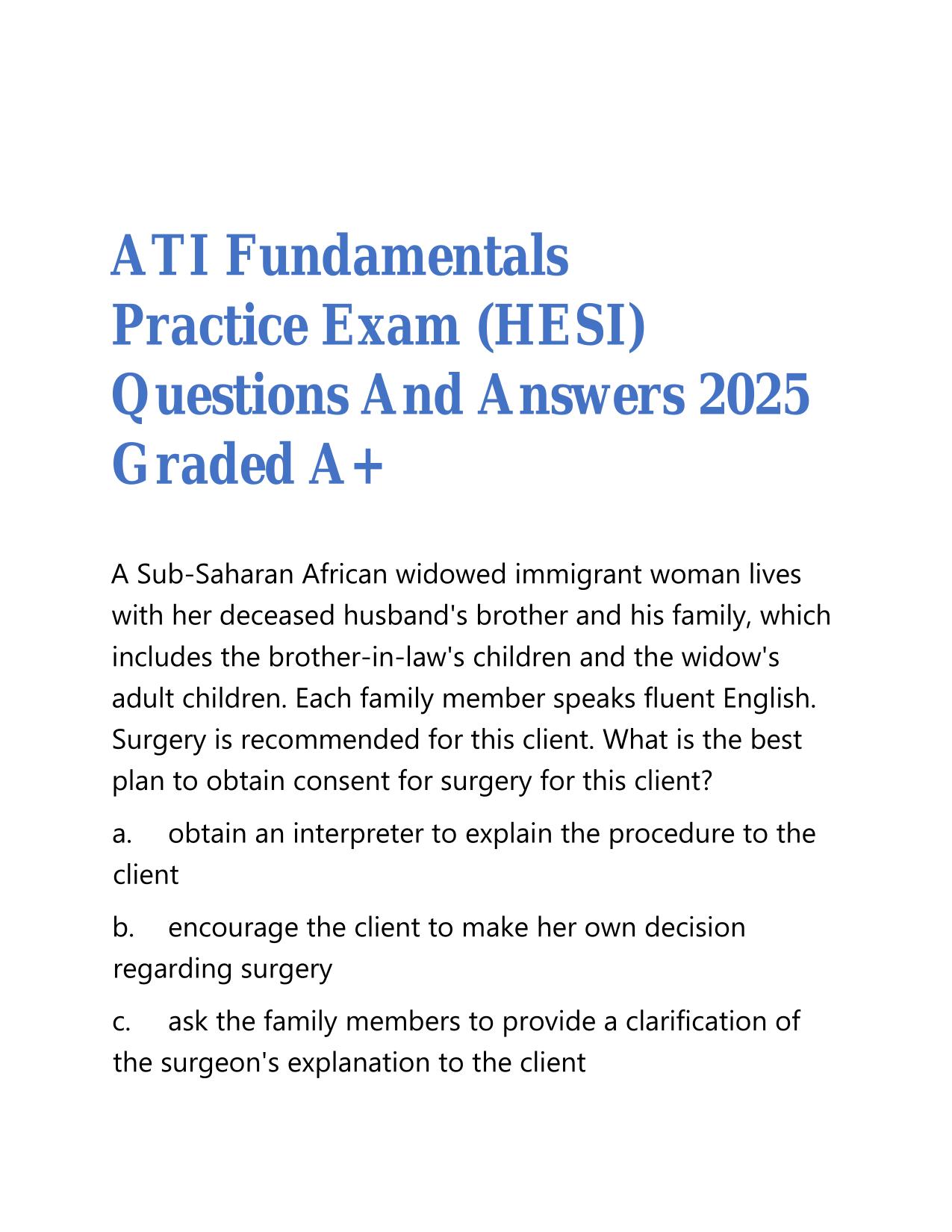
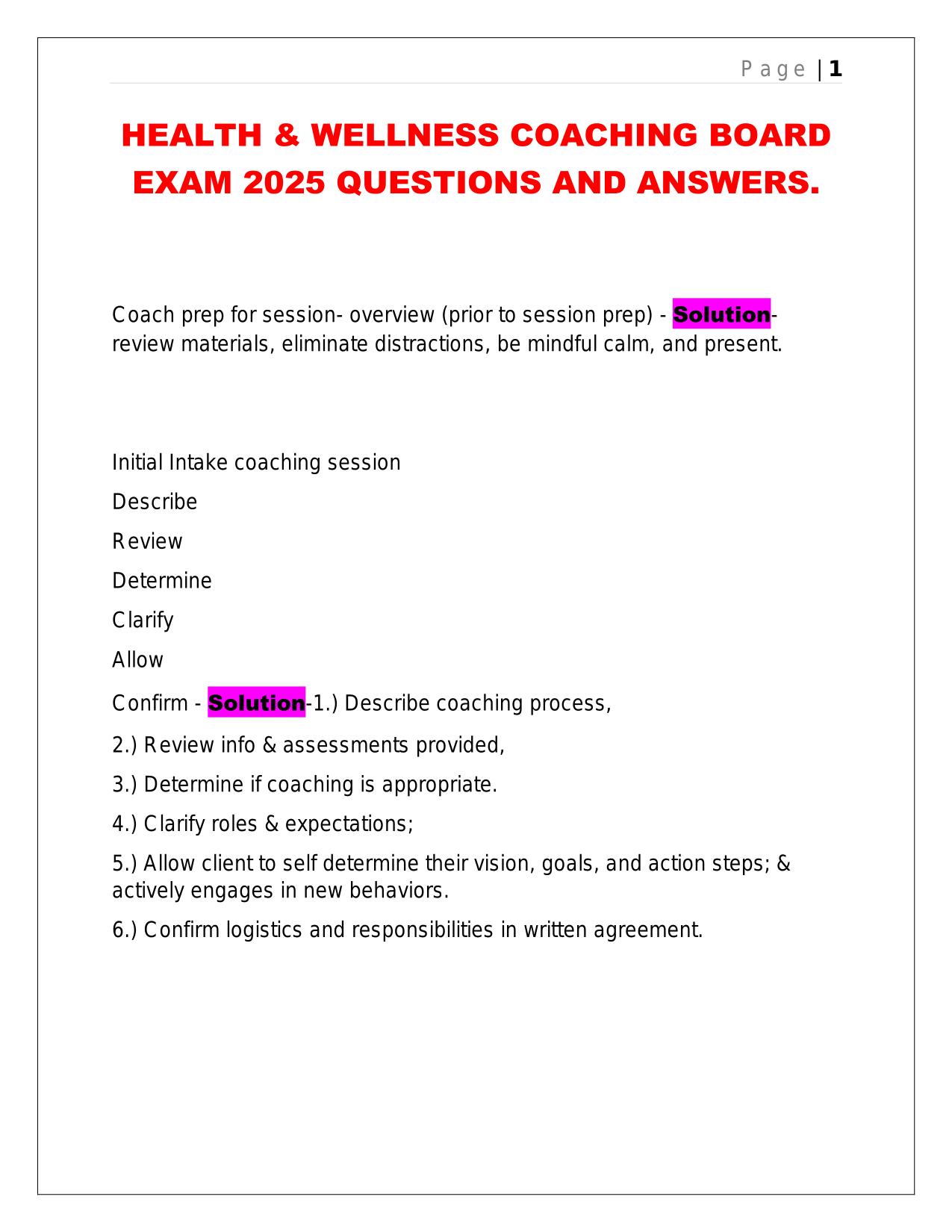
Best Compilation 2025/2026 Bundled Exams QUESTIONS AND ANSWERS |100% Pass |Verified and Updated
Includes 15 Documents
$24.99
Content Preview
ATI Gerontology Final Quiz (NGN ATI) (Detailed Exam Prep Solutions and Resources for the test in 2025 ) 1. A nurse is performing an assessment on an older adult client. Which of the following effects of the aging process should the nurse expect to see? -Increased urinary frequency 2. A nurse is performing a skin assessment on an older adult client Which of the following findings should the nurse recognize as a benign, age related skin change commonly seen in older adult clients? -Liver spots→ age spots or lentigines are flat, brownish black macules that usually occur in sun-exposed areas of the body. Unrelated to the liver or liver function. 3. A nurse runs a day care treatment group for older adult clients. Which of the following intervention strategies should the nurse recognize is the most appropriate to help the clients achieve their developmental task, according to Erikson? -Reminiscence therapy 4. A nurse is an assisted living facility is assessing an older adult client who moved in 3 months ago following the death of a spouse. The nurse notes that the client has frequently forgotten to take prescribed medications and has been skipping meals. The client reports awakening early in the morning and admits to feeling very sd. which of the following statements should guide the nurse in planning care for this client? -Unresolved grief in response to loss is a major factor in depression and subsequent suicide in older adults
 US
US

